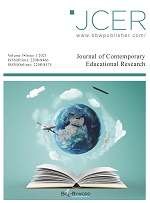Abstract
It is a known fact that monolingual children will take advantage of the principle of mutual exclusivity (ME) in the process of early word learning, i.e., the names of two different objects are mutually exclusive (one label for one referent). With the help of ME, they can expand their vocabulary effectively with a rapid speed. However, for bilingual children, it seems this principle is not that friendly to them, since they are exposed to two languages at the same time, so there could be at least two labels for the same referent. Hence bilingual children may be confused and encounter difficulties in learning words, which will slower their word learning process. This paper tries to, based on earlier research, probe into the question that how bilingual children acquire words without the help of ME, and explore whether there are advantages of not using ME in word learning for bilingual children.
